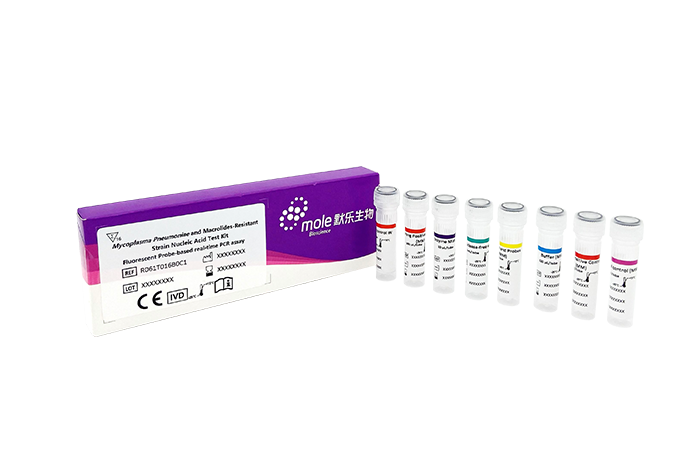
Mycoplasma pneumoniae cause mycoplasma pneumonia, upper respiratory tract infection, bronchitis, lung abscess, immune hemolytic anemia, meningitis, myocarditis, pericarditis, nephritis, community-acquired pneumonia and other diseases. Macrolide antibiotics are the first-line drugs for the treatment of Mycoplasma pneumoniae infection. The Macrolides-resistant strains have been isolated in clinical. The median durations of fever, hospital stay and the median fever duration after macrolide therapy was significantly longer in the Macrolides-resistant patients than that in the Macrolides-sensitive (MS) patients.
The shelf life of this kit is 12 months when stored in freezer at -(20±5) ℃ under light avoidance.
The subtypes of Mycoplasma pneumonia that can be detected by this kit include 8 genotypes (1a-1e, 2a-2c). The wild type of 2063 and 2064 site , and the mutations of A2063T, A2067G, C2617G do not interfere with the kit detection.
When the Ct value of target genes was greater than 34 (Ct> 34), 100% positive results could not be reached in every test within 10 repeated amplifications. The results of the recovery test show that the coefficient variation of Ct before and after recovery test results is less than 5%, which indicates that the kit is highly accurate.
By using gene sequencing as a comparative method of clinical trials, based on the results of the comparison, the detection sensitivity and specificity of this kit are both higher than 90%.
There are not cross-reactivates with the pathogens in the same infected site or with the similar symptoms.
2 in 1 Detection: Detects wild Mycoplasma pheumoniae and antibiotic resistant simultaneously in single tube.
Rapid Diagnosis: Amplification time within 90 mins, the total testing time from sampling to report will be finished within 2 hours.
High Specificity: Not observed reactivity with other pathogens after testing the same infection sites or cause similar symptoms.
High Sensitivity: The limit of detection of the kit is 500 copies/mL.
Early diagnosis of M. pneumoniae as well as the awareness of macrolide resistance make early effective antibiotic treatment possible and may improve clinical outcomes.